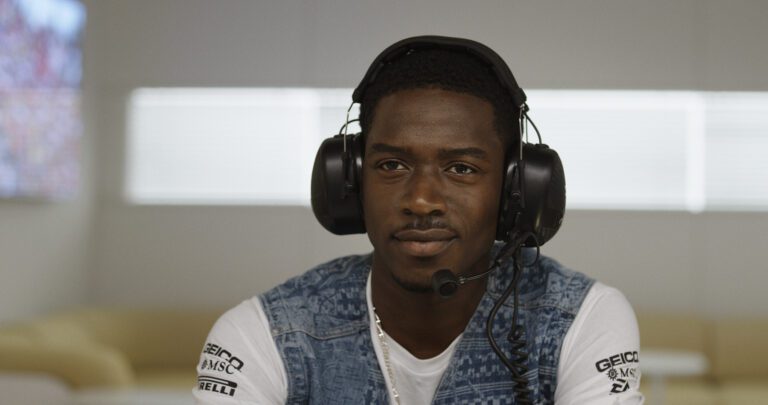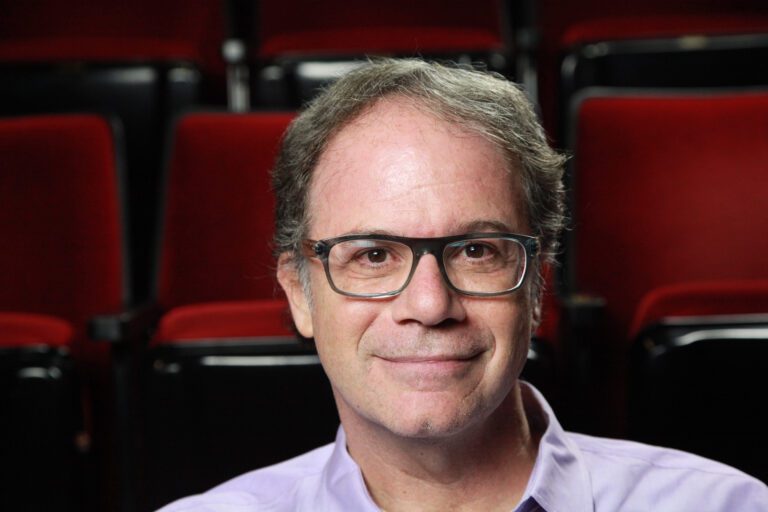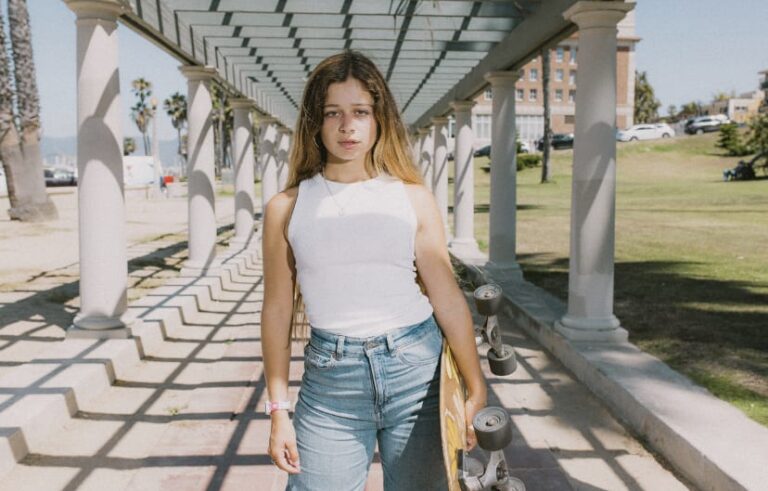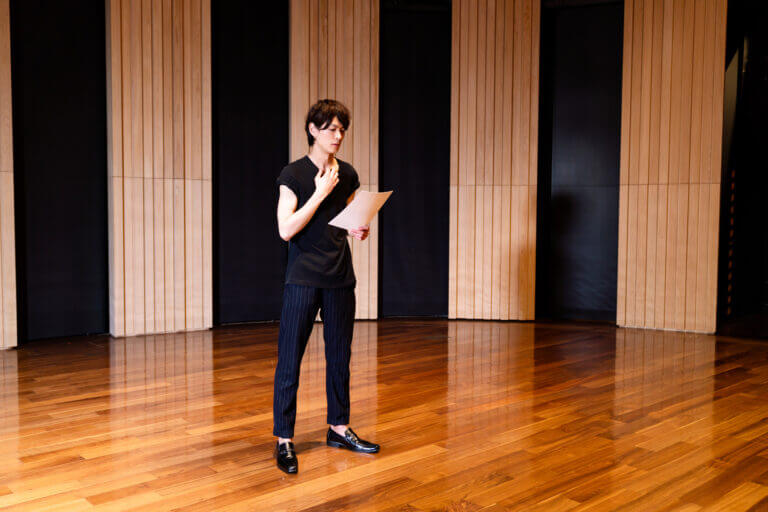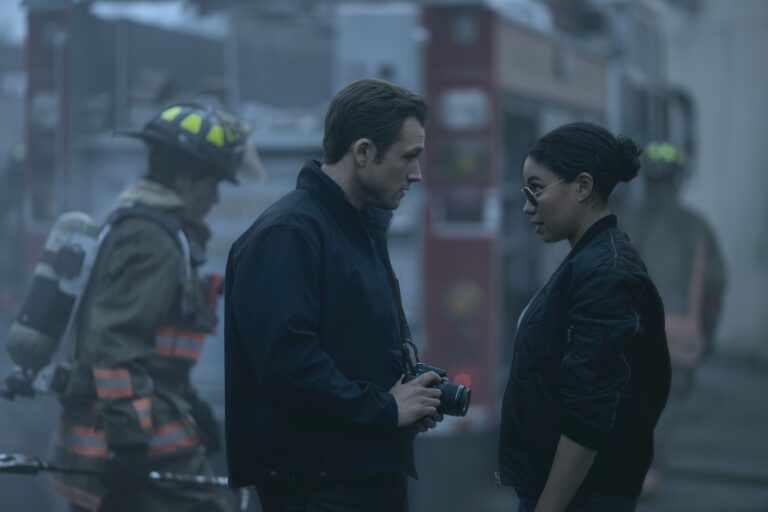Casting Director Joseph Middleton is the Maestro when it comes to finding actors for movies. The right actor can elevate a character from the page to the screen, transforming a story into an unforgettable cinematic experience.
Middleton is at the forefront of this process. He’s one of Hollywood’s most respected and influential casting directors. With a career that spans decades and includes work on some of the biggest blockbusters such as American Pie and Legally Blonde, Middleton has an unparalleled ability to find the perfect match between actor and role.
In this exclusive interview, Middleton shares insights from his illustrious career, discussing the challenges of casting, the qualities he looks for in actors and his thoughts on the evolving landscape of the industry.
Whether you’re an aspiring actor or a film enthusiast, Middleton’s experiences offer a fascinating glimpse into the world of casting.
You grew up in Georgia. In 1988 you were a PA (production assistant) on a film called Mississippi Burning. Then in 1999, your casting director career launched. Walk us through your journey as a boy from Georgia to PA to Casting Director.
I wanted to be in the government and it was a time when you couldn’t be gay so I wasn’t able to do that. Someone knew a wonderful man named Max Snow who said, “Do you want to go to Mississippi for four months and work on a movie?” I said, “Sure, I will do that.”
I was in accounting and I went to the set one day it was a period piece and three people looked very contemporary and I thought, “These people don’t belong in this movie.”
I stopped the director and said those people don’t belong and Alan Parker said to me, “You’d make a good casting director. Go work for Shari Rhodes in extras and locations and we are going to take you out of accounting.” And that is how my career started.
I really have to thank Shari mostly for believing in me before anyone else did. She offered me a job in Los Angeles the following year. I went and did that movie. I was her associate on The Sandlot and I had to find a lot of kids for that. After that, I partnered with Shari and then I got a couple of offers on my own, and two of them hit big: Go and American Pie. Then I was able to become my own casting director.
During your career, you’ve been asked to speak at such venues as the New York Film Academy and SAG-AFTRA Foundation, sharing your expertise and insights on casting with aspiring actors and industry professionals. These opportunities have allowed you to mentor the next generation of talent, while also reflecting on the evolving landscape of casting in the entertainment industry. How has casting changed over the years?
The biggest change since the pandemic for me is that I can see so many more actors for each role; not worrying so much about what agency they are from or their credits. Things have gotten more equal — particularly when you are looking for the third to seventh role down. Now we really can just look for the best actor right away.
You’re the Casting Director for the 2024 film Road House, which stars Jake Gyllenhaal as a dive bar bouncer. The original Road House was in 1989 with Patrick Swayze. Same thing with 1989/2019’s Pet Sematary. What type of pressure did you have casting a “re-invented / remake” film, knowing that original viewers would compare the two movies?
I try not to think of the original. I don’t want my casting compared, and I’m not looking to copy someone else’s work. Those two movies I hadn’t seen in a very long time so I was able to approach them as clean slates.
Two things excited me about Road House: It is my family’s favorite movie, and my hero Doug Liman wanted to direct it. I didn’t rewatch the original, I tried to make this cast mine and that’s all you can do.
You’ve worked with big names such as Brad Pitt, Angelina Jolie, Reese Witherspoon, Alyson Hannigan and Eugene Levy, yet you love finding undiscovered talent. When casting, are you given the choice to choose names vs. newcomers? How do you know which direction to focus on?
The business is the business. Having worked at a studio, I understand the pressure. I’m also not interested in making movies that are not going to be seen, so I know that having a recognizable name can help with that. It’s why we put Kirsten Dunst in Bring It On, and Reese had already done The Man in the Moon that Shari had discovered her in, so I had known and loved her always.
I think it’s a combination of sometimes the studio trusts the process and the director and sometimes you need a name or two to support how much money it takes to make a movie these days.
What qualities do you look for in an actor during auditions, beyond their ability to deliver lines?
I started in locations casting where you’re always looking for a person who gives, not a person who becomes. I’m always looking for that to show up in the room. I can always be surprised when someone comes in and says, “What you thought you were looking for is wrong, I am not that, but I am the character.”
For example, in Broken Hearts Club I had imagined a red-headed heavyset kid; then Billy Porter walked in and it was like, “Oh that was always his role.”
Authenticity, believability. I always want you to do your best. Even if you’re doing it for an audience of one, you are always acting and I am always watching.
How do you handle situations where a director or producer has a specific actor in mind, but you feel another choice might be better?
My whole job is to educate and try to see the movie and the vision of the director. My job is to take my expertise and expand what my director’s vision is.
Somewhere along the line of making the project, there is a fusion of the director/CD, where we become one with what we are looking for, but that can only happen if we are both able to trust in the expertise of the other and the vision the director is trying to make as a whole.
On A Single Man, Tom Ford was very specific and he said he would trust me on the talent but he needed a specific look. My job was to find a way to combine the quality of the actor we both wanted with the look he was looking for.
You were the EVP of Casting for Paramount Pictures and Paramount Television for nine years. How does working for a large corporate conglomerate differ from operating as an independent casting director?
Sometimes over the period of working for the studio, you find your voice, and your taste doesn’t matter as much as it does when you are independent. Sometimes you don’t get the credit but you do the get the blame. But you also get to see the inner workings of the business side of what is inherently a creative business and that has only been helpful as I transitioned back to being independent.
Please share a moment when you knew you had found the perfect actor for a role. What made them stand out?
I think that’s actually happened a lot in my career and I feel very blessed for that.
The more you prepare yourself as an actor, the more authentic you are. The more you show up as you are, the easier it is for me to find the perfect role for you.
I still have a handful of actors who have made me cry because their auditions were so good and I still haven’t found the perfect role for them. But I remember them and I am always thinking of things they could be right for.
Looking ahead, are there any specific trends or changes in the industry that you believe will influence casting in the future?
We don’t know what AI (artificial intelligence) is going to bring; there are a lot of unknowns.
The wonderful thing about change is sometimes it’s great, sometimes it’s terrifying, but we adapt. We adapted really well to the pandemic and figuring out how to do casting online, so I believe that that kind of adjustment will always happen in casting.
We will always find a way to make it better and make it work for us. We are casting directors, that’s the kind of people we are!
Anything else you’d like to say?
I’ve always said if I were to write a book, which I won’t, I would call it “Graciously Aggressive.” As an actor, you do need to be aggressive but not to the point of being scary. There’s a gracious way to reach out, to remind people you are available, show us a reel, etc. But if you do it more than twice a year, I think that’s too much.
If you are going to take the time to send something, make sure it’s really good, because that is going to be our impression and first impressions are really important, particularly when you are sending work.
Thinking about joining Casting Networks? Get 2 weeks free when you sign up today!
You may also like:


